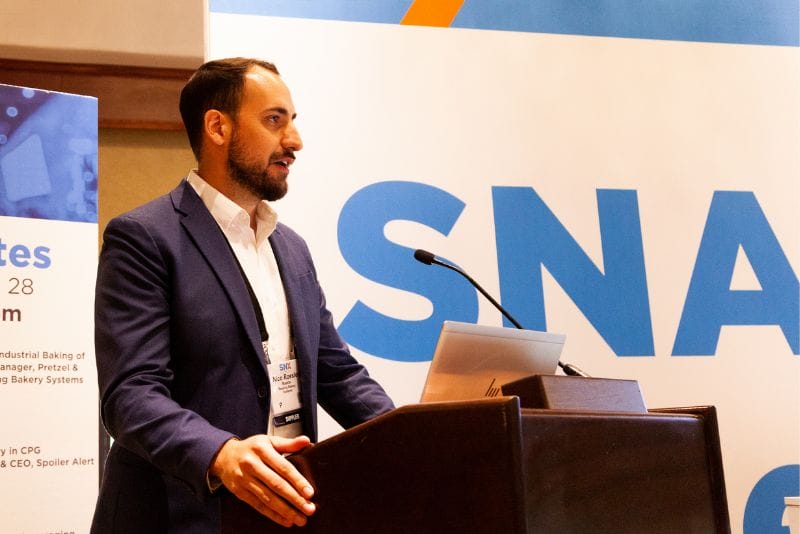PHOENIX — As snack and baked goods producers set their sights on more sustainable production, equipment and ingredient suppliers are determined to help.
Reading Bakery Systems (RBS), a category leader in the bakery and snack production equipment space, is one such supplier. Nico Roesler, North American pretzel and snack equipment sales manager for RBS, shared his company’s insights at SNX held March 27-29 in Phoenix, AZ, and detailed its initiatives on making snacking and baking better for the planet.











